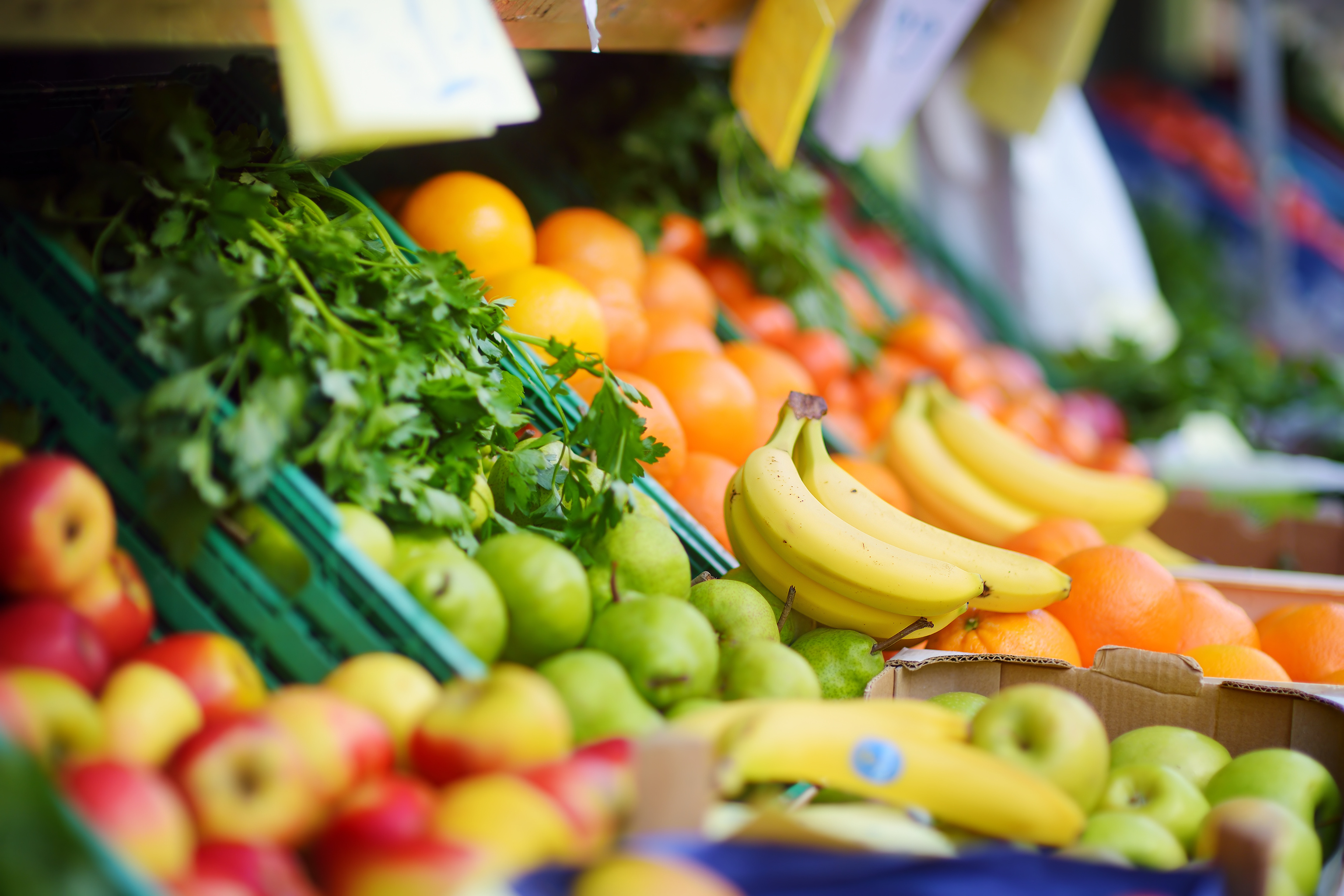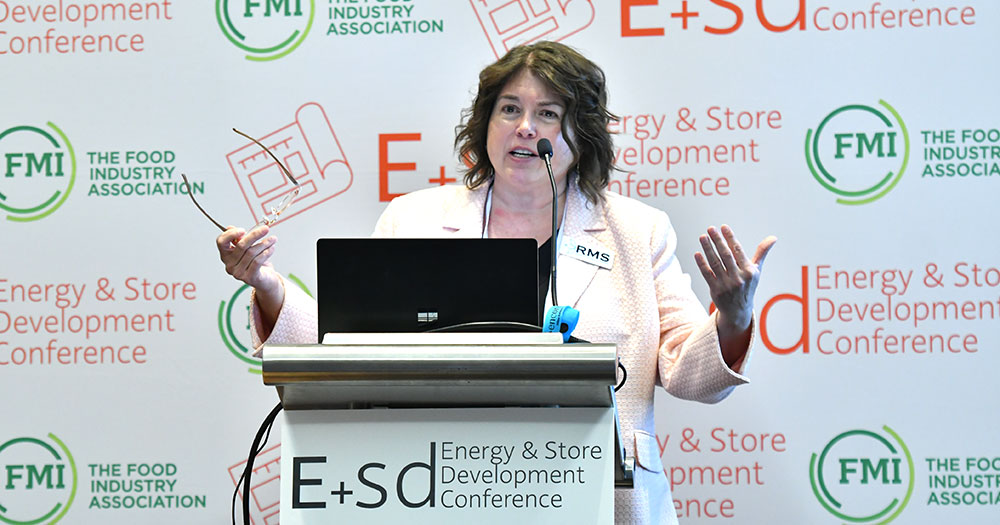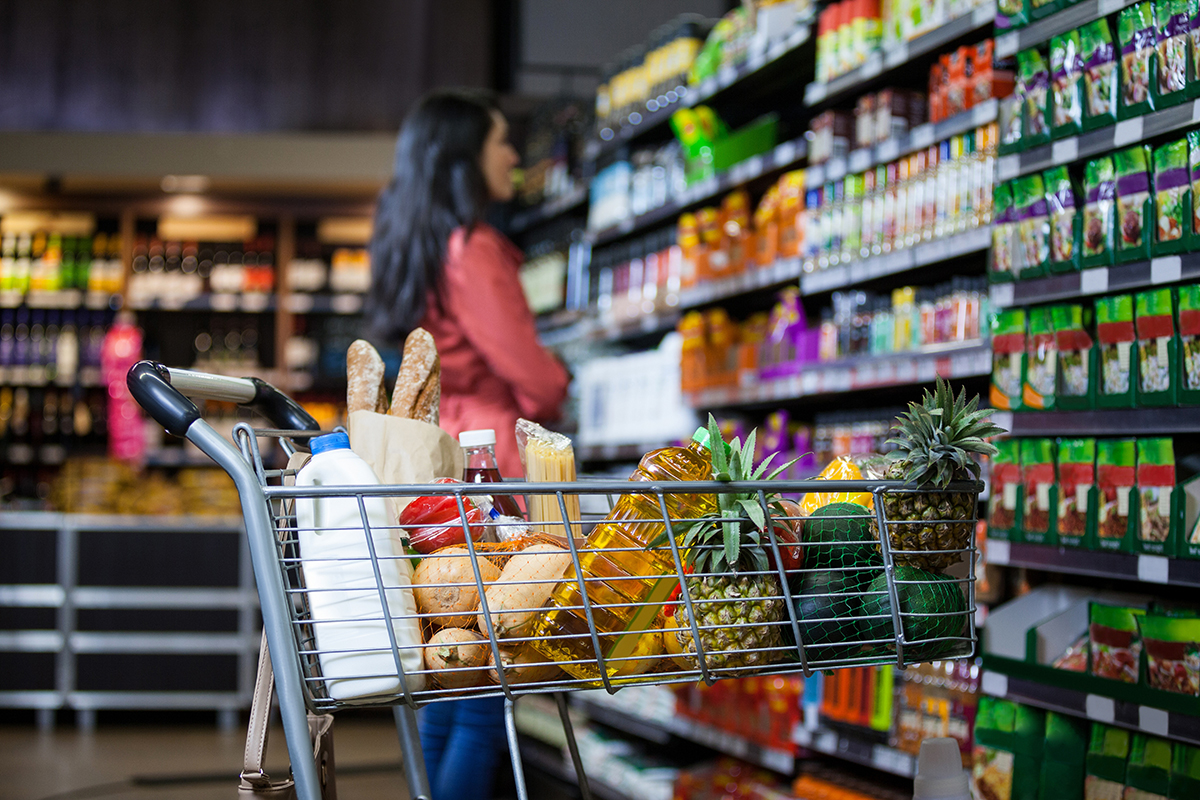By: Julie Savoie, Senior Director, Work Force, Talent & Sustainability, FMI

In the United States, where regulatory mandates on food waste reduction are less stringent than regions like the European Union, the food industry has found a unique chance to lead through innovation.
Approximately 31% of all food produced goes unsold or uneaten—a staggering figure that translates to a $382 billion opportunity for our nation, including an estimated $108 billion for food businesses alone. This isn’t merely an environmental concern; it’s a profound business opportunity. By reducing waste through more innovative practices, we not only cut costs and reduce operational risks but also strengthen our brand reputation among values-driven consumers, particularly Millennials and Gen Z.
Food Waste Prevention Week is an opportunity to reflect on the transformative changes underway in the food industry and share how it is driving this sustainable evolution. FMI’s members are actively adopting various innovative strategies to curb food waste.
Food Waste Prevention Through Technology
On the prevention side, many food retailers leverage data analytics, artificial intelligence and predictive tools to optimize ordering and inventory management. Smarter packaging solutions—such as breathable films and ethylene absorbers—extend product shelf life, while dynamic pricing models help move short-dated products more efficiently.
Redistribution and Recovery Spurred By Innovation
The redistribution and recovery of food that would otherwise go to waste plays a critical role in our circular economy approach. Strong donation networks and partnerships with organizations such as Feeding America and local food banks ensure that surplus food reaches those in need. Tax incentives further bolster these efforts, making food donations both a a socially responsible and economically smart choice. We’ve also seen innovative upcycling efforts where byproducts are transformed into new consumer products—an inspiring example of turning waste into value.
Engaging Consumers on Food Waste Reduction
Recognizing that over half of food waste in the U.S. occurs at the household level, FMI co-developed the FoodKeeper App in collaboration with USDA and Cornell University. This tool educates consumers on proper food storage and handling, ensuring that more of the food purchased ends up on the table rather than in the trash. Initiatives like these not only reduce waste but also empower consumers to make more sustainable choices, aligning with our broader Health & Well-being strategy.
Food Waste Prevention Week is a time for us to celebrate these innovative strides and renew our commitment to a sustainable future. It reminds us that every stakeholder in the food supply chain—from producers and retailers to consumers—has a role to play in transforming waste into opportunity.


 Industry Topics address your specific area of expertise with resources, reports, events and more.
Industry Topics address your specific area of expertise with resources, reports, events and more.
 Our Research covers consumer behavior and retail operation benchmarks so you can make informed business decisions.
Our Research covers consumer behavior and retail operation benchmarks so you can make informed business decisions.
 Events and Education including online and in-person help you advance your food retail career.
Events and Education including online and in-person help you advance your food retail career.
 Food Safety training, resources and guidance that help you create a company food safety culture.
Food Safety training, resources and guidance that help you create a company food safety culture.
 Government Affairs work — federal and state — on the latest food industry policy, regulatory and legislative issues.
Government Affairs work — federal and state — on the latest food industry policy, regulatory and legislative issues.
 Get Involved. From industry awards to newsletters and committees, these resources help you take advantage of your membership.
Get Involved. From industry awards to newsletters and committees, these resources help you take advantage of your membership.
 Best practices, guidance documents, infographics, signage and more for the food industry on the COVID-19 pandemic.
Best practices, guidance documents, infographics, signage and more for the food industry on the COVID-19 pandemic.
